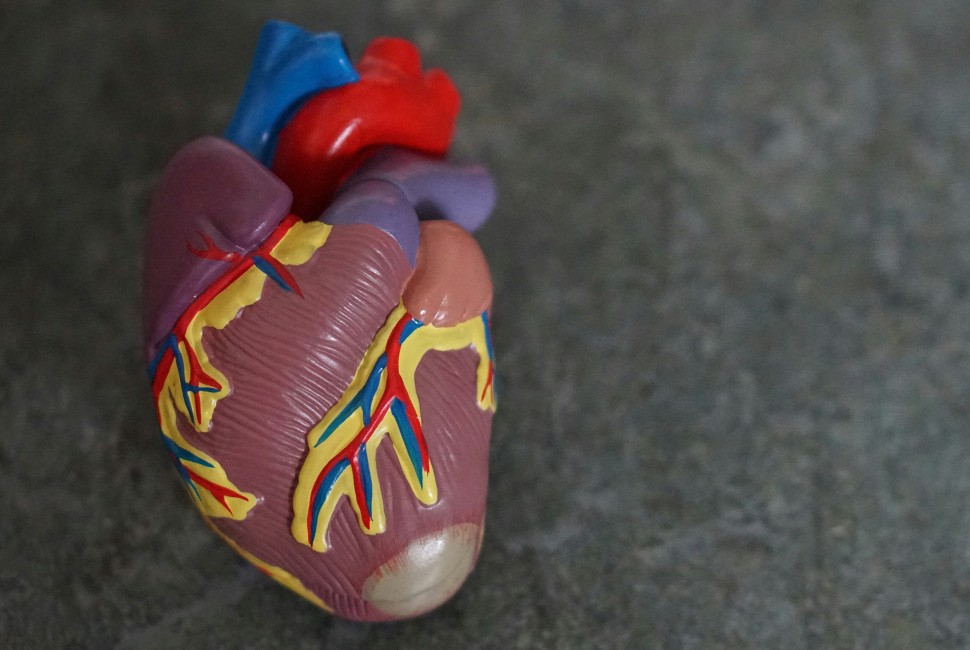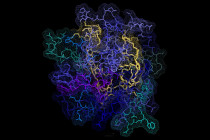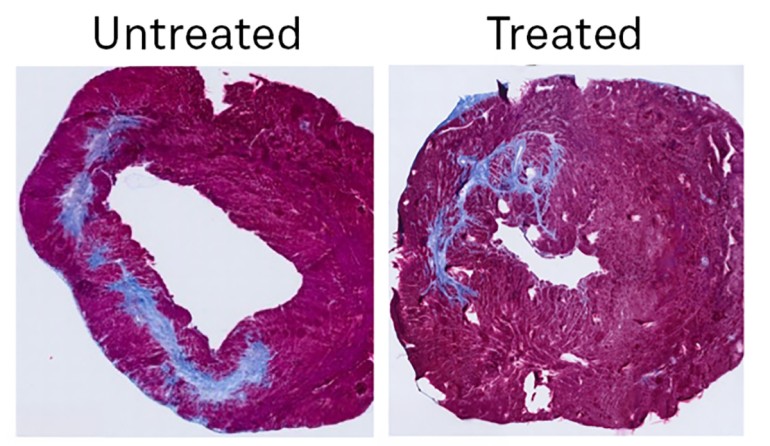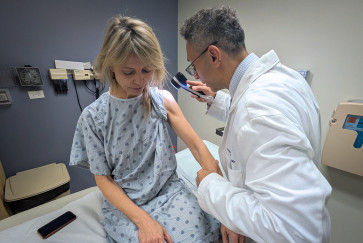Scientists at Northwestern University and University of California San Diego have developed a new, potent injectable therapy that can protect the heart from damage after a heart attack.
The therapeutic approach comprises specially designed polymers that act like proteins. These protein-like polymers (PLPs) “grab” onto regulatory proteins, which blunt the body’s natural healing process, in heart tissue. With those proteins out of the way, the healing proteins are free to do their job — preventing stress and inflammation.
After showing success in cell culture, the scientists tested their new therapy in a rat model of heart attack. Following a single, low-dose intravenous injection, the animals experienced decreased inflammation and cell death along with improved cardiac function and increased growth of new blood vessels.
The study was published in the journal Advanced Materials. The PLP platform is being commercialized by Northwestern spin-out company Grove Biopharma, which recently closed a $30 million series A financing round.
“Heart disease remains the leading cause of death worldwide, with heart attacks accounting for many of those deaths,” said Northwestern’s Nathan Gianneschi, a senior author of the study and scientific founder of Grove Biopharma. “Despite this startling regularity, there is relatively little that can be done to change the course of the subsequent progression to heart failure. Our work introduces an entirely new type of therapy capable of addressing previously ‘undruggable’ targets within the cells. It offers a promising strategy to change the course of this devastating disease.”
“Preventing heart failure after a heart attack is still a major unmet clinical need,” said UC San Diego’s Karen Christman, who co-led the study with Gianneschi. “The goal of this therapy is to intervene very soon after someone suffers a heart attack to keep them from ultimately going into heart failure.”
Gianneschi is the Jacob and Rosaline Cohn Professor of Chemistry at Northwestern's Weinberg College of Arts and Sciences, a professor of materials science and engineering and of biomedical engineering at the McCormick School of Engineering and a professor of pharmacology at Feinberg School of Medicine. He also is a member of the International Institute for Nanotechnology, the Chemistry of Life Processes Institute, the Querrey Simpson Institute for Regenerative Engineering at Northwestern University (RENU) and the Robert H. Lurie Comprehensive Cancer Center of Northwestern University. Christman is a Professor in the Shu Chien-Gene Lay Department of Bioengineering at the UC San Diego Jacobs School of Engineering.
From heart attack to heart failure
According to the U.S. Centers for Disease Control and Prevention, 6.7 million Americans over the age of 20 have heart failure, which occurs when the heart is unable to pump enough blood to the rest of the body. After developing heart failure, 52.6% of patients die within five years. The most significant cause of heart failure is a heart attack, which affects more than 800,000 Americans each year.




